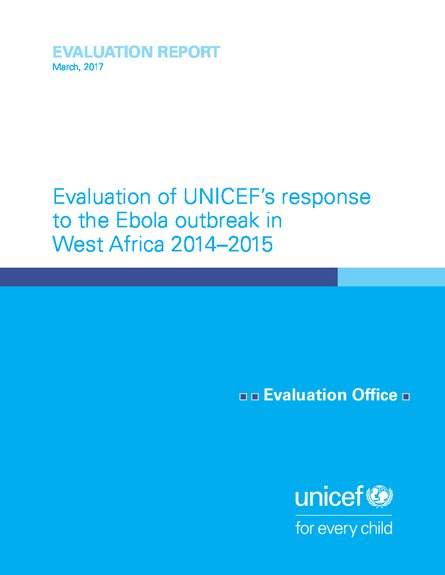
Through much of 2014 and into 2015, the international community witnessed an outbreak of Ebola virus disease in parts of West Africa that was unprecedented in scale, severity and complexity. The toll in illness and death was severe: more than 28,000 people were infected and more than 11,000 died. Some 16,000 children lost parents or caregivers to Ebola. The impact of the outbreak went far beyond those grim figures. The three most-affected countries – Guinea, Liberia and Sierra Leone – were ill-equipped to respond. As a result, the outbreak wrought serious humanitarian, economic, development and health consequences. Livelihoods were disrupted, fragile health systems were severely compromised and entire educational systems were either shut down or school openings delayed. The outbreak revealed serious deficiencies in national and global response mechanisms aimed at controlling potential pandemics. It took the greater part of 2014 for the national and international response to help bring the outbreak under control. The outbreak was ultimately contained thanks to efforts of affected communities themselves, local leaders and the massive deployment of international resources. This report presents results from an evaluation of UNICEF’s response to the crisis. It documents and analyses UNICEF efforts, drawing out important lessons to prepare and strengthen UNICEF’s approach to addressing future public health emergencies. UNICEF country offices began responding to the Ebola outbreak in early 2014. In early September, a corporate-level emergency was declared, under which, in coordination with many partners, UNICEF mobilized an agency-wide response to the crisis. The response was sustained through 2015.
